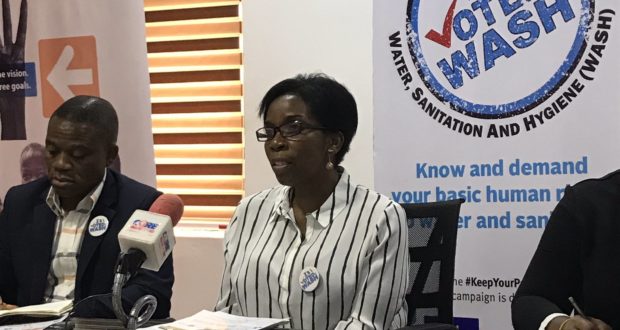Country Director, WaterAid Nigeria, Dr Evelyn Mere, has urged government and donors to step up their investments in water, sanitation and hygiene, to tackle cholera outbreaks in the country.

Mere made the call in a statement signed Mrs Rachel Ogunlana, Communications Support Consultant, WaterAid Nigeria, and made available on Thursday, October 7, 2021.
She said WaterAid was deeply concerned about the cholera outbreak that had affected communities in several states in Nigeria and “claiming over 3000 lives so far, especially affecting young children between 5 and 14 years old.
“The numbers might even be higher, as people in hard-to-reach areas have been affected as well, but they are not all included,” she said.
The Country Director stressed that in order to tackle the challenge, there was the need to step up investments in the water and sanitation sector.
“The Nigerian government and donors need to step up their investment in the grossly underfunded water, sanitation and hygiene sector, which was declared to be in a state of emergency in 2018.
“Improving living and sanitation conditions in a sustainable way is extremely important in the fight against diseases like cholera and the impacts of climate change,” Mere said.
She noted that communities need proper handwashing and sanitation facilities, and clean water sources that are at a distance from toilets so there’s no cross contamination.
According to her, her organisation feared that the global climate crisis, is likely to lead to more erratic rains and river floods.
“This will increase the number and severity of these outbreaks, as there will be a higher risk of floods contaminating clean water sources.
“This recent outbreak has been the most lethal in several years, considering the number of cases and deaths recorded so far.
“It shows how important clean water and good sanitation and hygiene are to saving lives. Even though the rainy season is coming to an end, the outbreak is ongoing”, Mere said.
She said WaterAid was working closely with the authorities in several states and at the national level in the fight against cholera, including “intensifying the campaign against cholera through TV and Radio messages,
“Focusing on the importance of access to safely managed toilets in households and public institutions, and an end to open defecation while campaigning to improve handwashing habits.”
The Country Director also pointed out that WaterAid was working continuously to influence governments at all levels to prioritise the access of communities to clean water.
“Their waste is often washed away by rain, contaminating water sources like drinking wells, especially during the rainy season,” she added.
